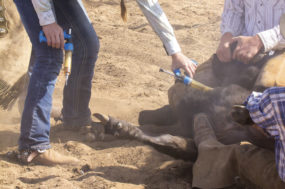In this article, I present the idea that all three have an almost identical assignment. We will then see what we can learn about supervision from sports coaching and conducting.
The identical assignment is that every athlete, musician and farm employee is expected to execute his or her responsibilities and tasks exceptionally well so that the team/orchestra/business succeeds.
I think you will agree most coaches and conductors are much more effective at this assignment than most supervisors.
We begin by focusing on the roles of coach, conductor and our traditional view of the supervisor:
-
Coach: The coach’s job is to ensure that each player executes his or her actions perfectly so that each play is successful. The coach is continually identifying opportunities for each player to move closer to perfection in execution. The coach also must continually teach players how to adjust (audibles) to the actions of players on the other team. The coach typically cannot play the game.
-
Conductor: The conductor’s job is to ensure that each musician plays his or her notes perfectly so that the orchestra provides beautiful music. The conductor continually identifies opportunities for each musician to achieve perfection. The conductor is usually not playing an instrument.
- Supervisor: Most view their job as seeing that the employees do their jobs. Supervisors provide feedback immediately and at prescribed formal meetings: performance evaluations. Most supervisors also perform many of the same tasks as those they supervise; they “play the game.”
From my experience and the above descriptions, I see four differences:
- Importance of adjustments (audibles)
- “Playing the game”
- Focus on improvement
- Role of feedback
Let’s look at each.
Importance of adjustments (audibles)
The coach and the conductor are opposites here. Musicians have little or no need for adjustments. Athletes are continually adjusting to the actions of the other team. Most employees are between these two extremes.
Many supervisors excuse their lack of focus on perfection due to changes in circumstances – weather, biology, etc. The experiences of sports coaches argues otherwise.
“Playing the game”
Neither coaches nor conductors typically “play the game.” I see advantages and disadvantages for being able to participate in the tasks. This difference does not, however, detract from our learning from coaches and conductors. We return to the advantages and disadvantages in the last section.
Focus on improvement
The difference is dramatic here. Can you envision how a coach or a conductor could be successful if the players or musicians became defensive and resistant every time the coach or conductor had a suggestion for improvement?
In contrast, most supervisors interact less frequently with those they lead and supervise, are less focused on improvement, and the employees are much more defensive in receiving suggestions for improvement.
As frequent readers of my articles know, I am a big fan of the Minnesota Golden Gopher women’s hockey team. My wife and I sit behind the player bench. Often, after a shift, one of the coaches talks to a player. I cannot hear them, but I am certain they are making suggestions for improvement. I have never seen a player show defensiveness or anger.
In no way am I a musician, but I have been to lessons and rehearsals with my sons. In every case, there was a continual flow of suggestions for improvements. Again, I saw little defensiveness or “push-back.”
Athletes and musicians tend to be driven, so the absence of defensiveness and “push-back” is not due to ambivalence. Why then?
The answer lies in expectations. In sports and in the arts, the athlete or performers have an expectation that they will be continually critiqued, given ideas for improvement and pushed to excel. It is the culture.
That expectation is rare in supervisor/employee situations. Our societal view of the supervisor’s role is to catch employee mistakes. Unfortunately, most supervisors and employees bring that view to work.
Think about the performance potential if your beef production business culture included the expectation of continuous feedback and improvement.
Role of feedback
The role of feedback again is dramatically different. Coaches and conductors provide it continuously, willingly and informally. Supervisors are often unwilling to provide feedback, rarely provide it continuously and often require formal meetings: performance appraisals.
What do the differences mean?
I am hopeful you will agree that supervisors can learn a lot from coaches and conductors. Simply stated, supervisors need to do less “supervising” and more coaching. Let me make two suggestions:
- The clear difference in focus on improvement is due to the expectations of excellence and continuous improvement by athletes and musicians. The leaders and supervisors of ranches, farms and other businesses must develop a culture of improvement.
As with sports and the arts, suggestions for improvement must become continuous, expected, willingly given and willingly received. Changing a culture is not easy. It must start with leaders and supervisors leading by example and explaining why the change is needed.
- The performance appraisal as we know it must become a thing of the past – a dinosaur. Feedback must be provided immediately, positively and with the focus on improvement. More formal infrequent meetings are still required, but they must focus on the future – employee growth and career development.
A final note about the supervisor playing the game
The problem with the supervisor also being involved in doing the work – “playing the game” – is that doing can easily become the priority over coaching. Success in establishing a culture of improvement requires the supervisor/coach to accept, internalize and operationalize giving their supervisory/coaching role top priority.
The advantage of being able to “play the game” is that the supervisor can often execute their coaching role while working alongside the employee or employees they supervise. ![]()
Bob Milligan is also professor emeritus, Dyson School of Applied Economics and Management, Cornell University. Email Bob Milligan.








